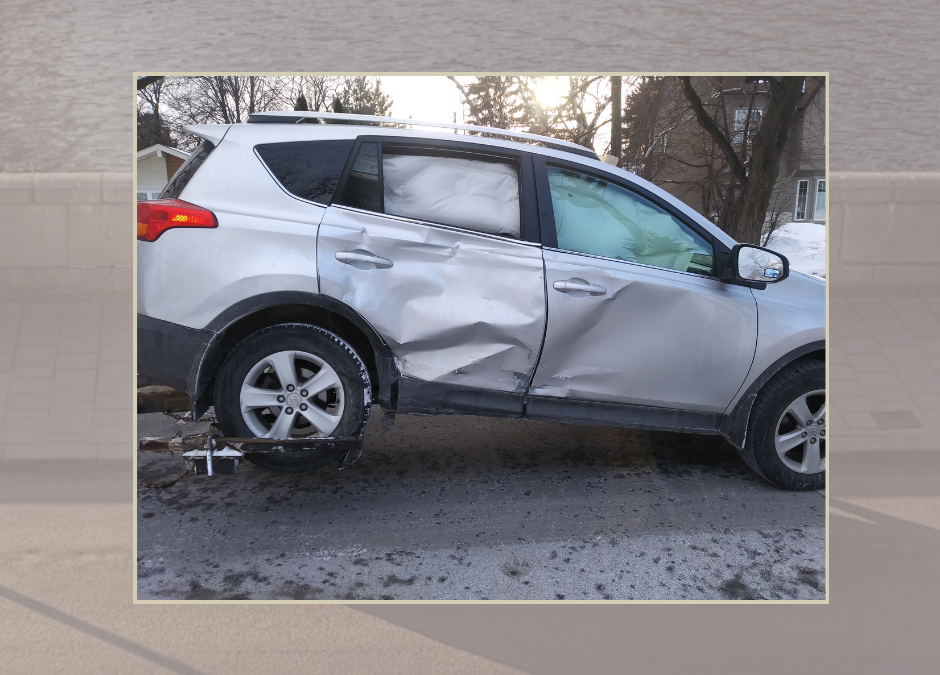
by Cori Leigh | Jun 12, 2024 | Faith, Short Stories
Sierra sat propped up in her bed, her room shrouded in the dim, gray light of early morning. The laptop screen cast a cold, blue glow on her face as she scrolled through page after page, searching for a glimmer of hope amidst her sea of despair. Each click felt heavier, as if the weight of her sorrow was pressing her down into the mattress.
It had been 18 long months since her fiancé, Seth, was killed in a fatal car crash. The dreams they had shared, the future she had envisioned, seemed to have died along with him. The weight of grief, anxiety, and depression felt like an anchor, dragging her deeper into a chasm of darkness.
Her eyes were red and swollen from countless nights of tears, and her heart felt like it was wrapped in layers of lead. With a heavy sigh, she continued her search for something—anything—that might bring her comfort. Just as she was about to close her laptop in defeat, her weary eyes stumbled upon a blog titled Light in the Shadows. Desperation drove her to click the link, hoping that perhaps, just maybe, this time something would speak to her aching heart.
Through blurred vision, Sierra read a poem titled A Hope for Tomorrow:
A Hope for Tomorrow
Black clouds of uncertainty
leave you no hope;
as you stumble and fall
down a discouraging slope.
Into your valley of
lonely despair,
Jesus is asking you
to meet Him right there.
He’ll raise out from your valley
restoring lost hope,
giving you strength as
you learn to cope.
He is your light of hope
in all of the pain;
joy comes in the morning
so you can dance in the rain.
He knows your sorrows
and just how you feel,
aware you are hurting
and wants you to heal.
He heals your broken places
and calms the fears;
be your light of hope for
all of your years.
Let the Lord radiate your path
for today and tonight,
taking you out of the shadows
and into His light.
Surrender all of your burdens
and broken heart,
Jesus is your comforter
in Him healing will start.
You are wonderfully made
and He loves you,
knowing just when you’re
happy or blue.
One day at a time He’ll help
you to stand,
as you walk in faith toward
all He has planned.
In Him, you have a purpose
and are here for a reason,
the struggles you face
are here for a season.
Sierra’s tears began to dry as she absorbed the soothing words of the poem. A flicker of realization sparked within her. It had been too long since she had turned to God, too long since she had sought solace in her faith.
A sense of clarity washed over her—perhaps it was time to reconnect with the faith she had abandoned. Closing the lid on her laptop, she rose from her bed with newfound resolve.
Grabbing her Bible, she opened it up to the first verse she saw. It said:
“You, Lord, are my lamp; the Lord turns my darkness into light.”
2 Samuel 22:29 (NIV)
Have you ever faced a time when everything seemed to fall apart, and hope felt like a distant dream? What helped you navigate through those moments of darkness? I invite you to share your experiences and insights in the comments below. Your story could be the light of hope someone else needs.

by Cori Leigh | Jun 12, 2024 | Faith
No matter what challenges you face today, your life holds a great purpose!
Every moment offers opportunities to grow, change, and heal. Purpose, peace, and healing often emerge while in the throes of life’s broken places. There is hope and a purpose that rises above the pain of our circumstances. However, many of us struggle to hold onto hope for a brighter tomorrow despite the challenges we face during tough times.
Like I did years ago and continue to today, take a moment to acknowledge where you are and how far you’ve come. Consider journaling about your experiences—what has challenged you the most, and what lessons have you learned? Writing down your thoughts can help you identify patterns and gain insight into your growth.
When hope fades, it’s easy to focus on what’s wrong. Instead, try to find one positive thing each day, no matter how small. It might be a kind word from a friend, a moment of peace, or a task you accomplished. Celebrate these small victories! They are stepping stones toward a greater purpose.
Embrace Healing
Years ago, I was overwhelmed by fear, anxiety, and panic attacks—each triggered by traumatic life events. When hope fades, it’s easy to focus solely on what’s wrong, which makes it difficult to see what’s right. This mindset can leave us feeling more stuck, making it challenging to discover a purpose that reaches beyond the pain of our circumstances.
This was me years ago. I felt trapped in my circumstances, with hope for a better and safer tomorrow seeming far out of reach. Healing and freedom from fear, worry, and anxiety appeared unattainable.
Just as I faced anxiety and panic attacks, it’s important to identify what triggers your stress and anxiety. This awareness can empower you to manage or avoid these triggers, creating space for healing.
Understand that healing is a journey that takes time. Be patient with yourself and allow yourself to feel what you feel without judgment. Practice self-care activities that nurture your soul, like taking a walk or spending time with loved ones.
Healing Through Writing
During this time, I wrote more than ever before. Writing became a healing ointment for my hurting heart. On paper, I could pour out my feelings about everything. Sometimes I read past journal entries from years past. In those times it’s a look at my life through previous writings. I see the broken woman I once was. Those pages hold broken dreams, seasons of grief, hopelessness, and sadness.
Start Journaling: Just as I found healing in writing, you can too. Start by journaling your thoughts and feelings each day. Don’t worry about structure—let the words flow naturally. Over time, you may find that journaling helps you process emotions and gain clarity.
Reflect on Your Progress: Revisit your old journal entries to see how much you’ve grown. This can be a powerful reminder of your resilience and the progress you’ve made.
Finding Peace in Faith
In my broken and anxious, fearful heart, God met me there. I’m still in awe of how Jesus sprinkled His light of hope in my darkness—enough to carry me through each day. He gave me hope and a purpose that reached beyond my pain. I could finally dance in the rain—not because all my problems vanished, but because I had hope.
Lean into your faith it during difficult times. Wrapping yourself in the love of a loving God. Let Jesus comfort and remind you that you’re not alone.
Remember, peace isn’t the absence of problems but the presence of hope in the midst of them.
Regardless of the extent of your suffering, past or present, there is hope and a future! One that leads to brighter tomorrow.
I’d love to hear from you in the comments below…
Can you remember a time when you were in a dark season?
How did you find hope for a better tomorrow?

by Cori Leigh | Jun 5, 2024 | Journey From Anxiety to Peace
Anyone who has suffered a panic attack knows how horrible they are. I struggled for so many years with terrible panic attacks. They came out of the blue multiple times a day. Eventually, I became so afraid of when the next one would come. I didn’t know how to calm myself down when panic struck.
(more…)

by Cori Leigh | Jun 5, 2024 | Journey From Anxiety to Peace
Years ago, I a therapist suggested I write a letter to the anxiety. So I sat down and did just that. Truthfully, at the time doing this felt as crazy as living with anxiety did. To my surprise, it was amazing! It felt really good to talk back to what at the time I viewed as my tormentor. I then started a journal where I would write letters to the anxiety and panic attacks. There I would write many letters to my problem. Telling anxiety just what I thought of it so I could take my life back.
(more…)

by Cori Leigh | Apr 10, 2024 | At the Heart of Caregiving, Encouragement for Caregivers
March 5, 2019, began like any other day, but it swiftly turned into a defining moment that would forever alter our family. A devastating car accident left my parents injured and their vehicle totaled, shattering our sense of normalcy.
The crash inflicted several injuries on my mother: broken ribs, a concussion, a crushed collarbone, hearing loss, and persistent tinnitus. My father, though less physically harmed, suffered from back injuries, hearing loss, and signs of concussion.
The aftermath was a whirlwind of hospital visits, medical appointments, and the daunting challenge of managing their injuries. Their once active and independent lives were suddenly marked by vulnerability and struggle.
This ordeal was not merely a physical blow; it was an emotional and psychological one. The trauma of the accident shook our family to its core. In those early days, it felt as though life had been irrevocably divided into “before” and “after” the accident, marking the beginning of a challenging new chapter.
When life changes dramatically, it’s essential to allow yourself to grieve the loss of your previous normal.
This doesn’t mean giving up hope, but acknowledging that life has changed and that it’s okay to feel sadness, frustration, or even anger about it.
Becoming a Caregiver
As their physical and emotional recovery began, it became clear that my role shifted to caregiver. Both of my parents struggled with hearing loss, adding another layer of complexity to their situation. Their emotional and cognitive struggles were evident.
Taking on the role of a caregiver was not something I had anticipated. It was, however, a responsibility I’d come to accept and embrace. This shift in roles is one that many adult children face as their parents age, often triggered by a significant event like an accident or illness.
Seek Support
- Whether through support groups, counseling, or trusted friends, don’t try to navigate the caregiving journey alone.
- Caregiver burnout is real, and having a network of support can make a world of difference.
- Consider reaching out to local organizations that offer resources for caregivers.
A Shifting Reality
Over the next few years, the impact of the accident became increasingly apparent. Each day brought new challenges. The initial shock evolved into a deep understanding of how much my parents had aged.
Our family dynamics shifted significantly. What was once a relationship based on mutual support had evolved into one where I was the primary caregiver. This shift can be difficult to accept, both for the caregiver and the ones being cared for. It’s a reminder that life is ever-changing, and we must adapt to those changes, even when they are unwelcome.
Adapt to Change
- Life rarely goes according to plan.
- Embrace change rather than resist it.
- Find new ways to connect with loved ones.
- Redefine your relationships in positive ways.
- Flexibility and patience are key during these times of transition.
The Long Road Ahead
My journey through caring for my mom and dad’s needs was not just about managing immediate ones but about adapting to a long-term reality. It required me to confront the evolving nature of our family dynamics, recognizing that the support and care my parents needed were part of a larger, ongoing commitment.
Reflecting on that fateful day, I see it as the beginning of a journey that, though challenging, has taught me invaluable lessons about love, resilience, and the enduring strength of family bonds. The road ahead is one of continuous adaptation, but it’s paved with hope and unwavering commitment.
Focus on the Positive Notes
While caregiving can be overwhelming, it’s also an opportunity to strengthen family bonds and create lasting memories.
- Focus on the positive aspects of your new role.
- Celebrate the small progress along the way.
Life’s unexpected turns, like the car accident that redefined our family dynamics, can be difficult to navigate. But within these challenges lie opportunities for growth, connection, and deepening relationships. By embracing the changes and finding support, we can rise above the pain and discover a renewed sense of purpose and hope.
I’d love to hear your stories and insights in the comments below. Sharing your experience can help others who are going through similar challenges.
Have you experienced a similar shift in family dynamics?
How did you navigate the changes?




